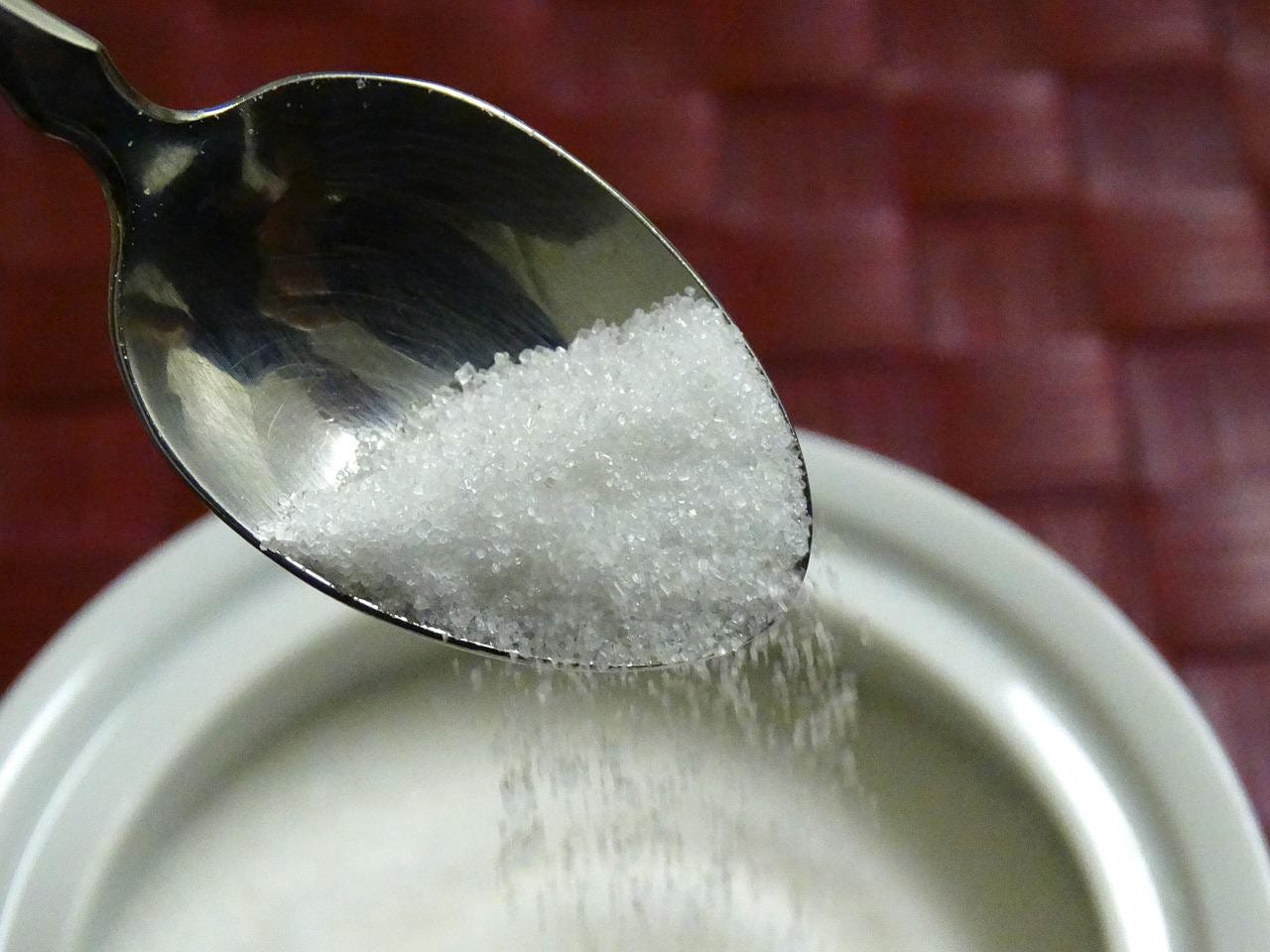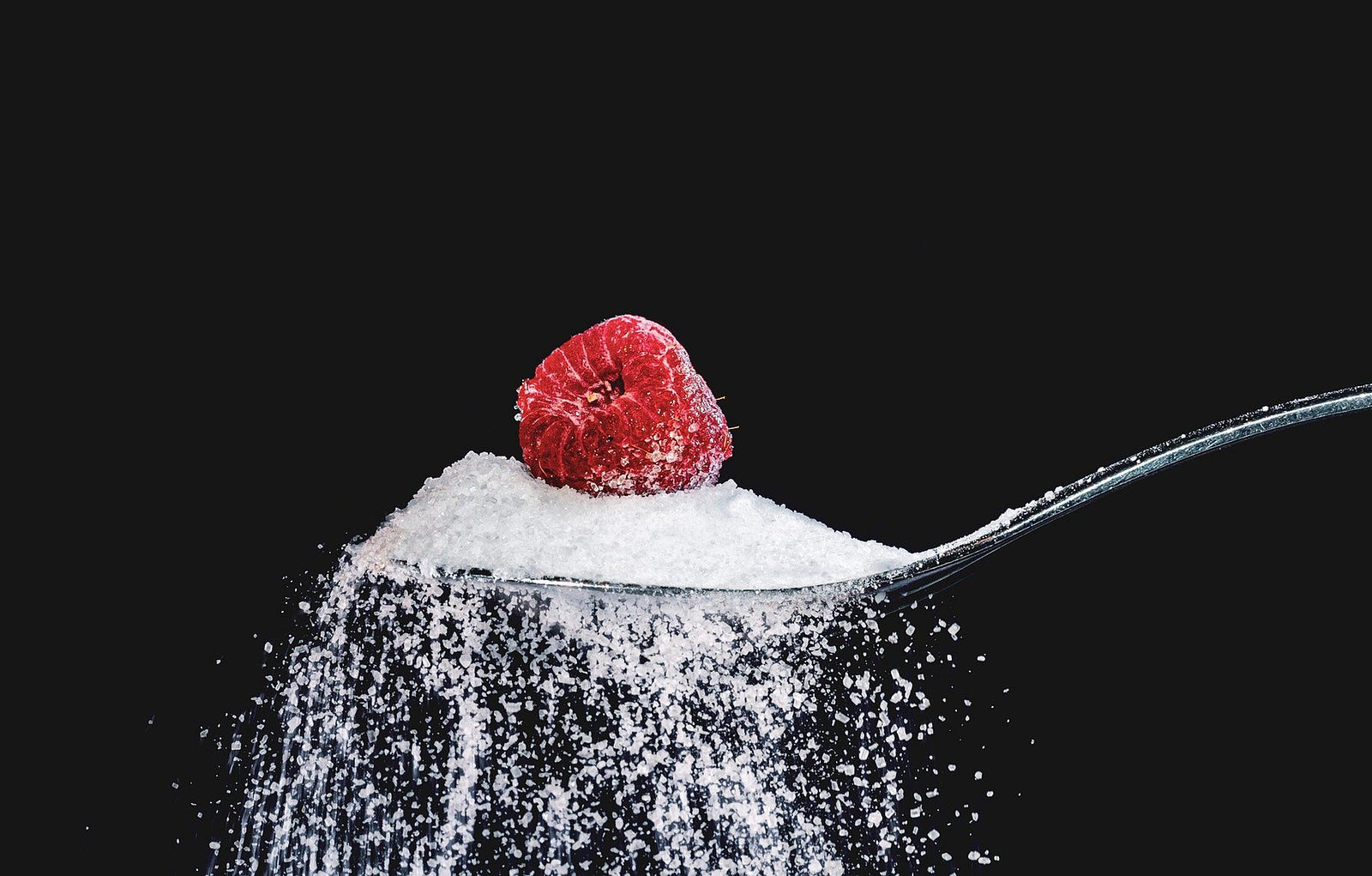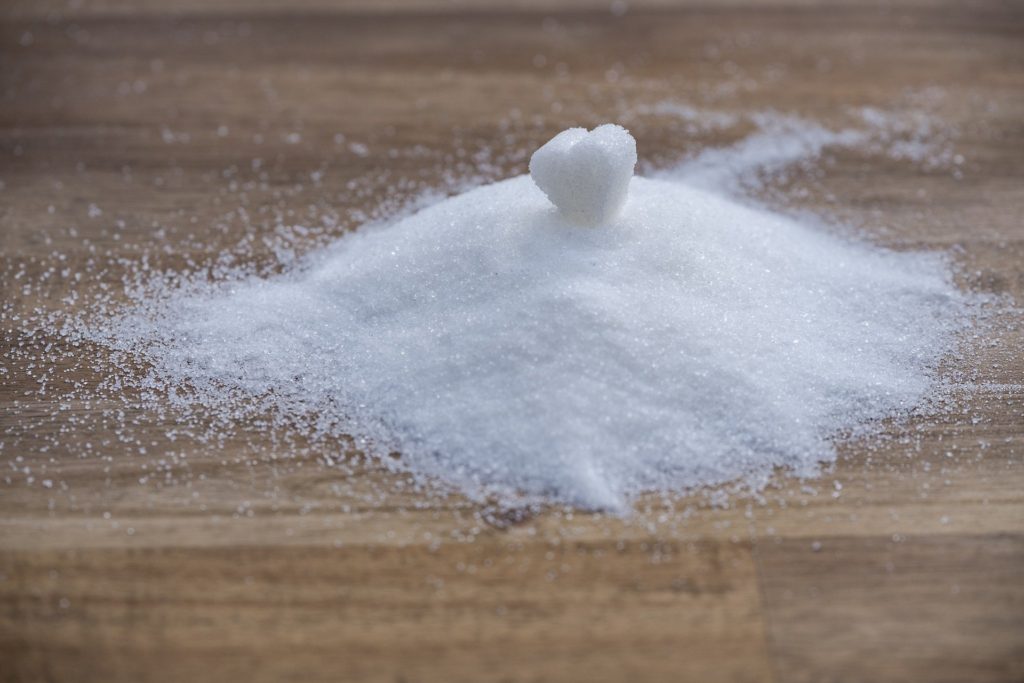A carcinogen is any substance that has the potential to cause cancer.
But, are artificial sweeteners carcinogenic?
Artificial sweeteners have been linked directly to an increased risk of cancer in rodents, but it remains unclear whether or not they actually do cause cancer in humans.
There are many conflicting studies out there.
Let’s take a look at some of the most commonly used artificial sweeteners, their pros and cons, and how they might affect our health, but specifically looking at if they cause cancer or not.
1.) Aspartame
Aspartame is often used in conjunction with other artificial sweeteners. It is composed of two amino acids — phenylalanine and aspartic acid. It is about 200 times sweeter than regular sugar, so very little is needed to sweeten a product.
Aspartame was discovered in 1965 and approved by the FDA in 1981.
It is the most commonly used artificial sweetener in the world, especially in the food and beverage industry.
It is found in almost all diet sodas, many packaged goods like cookies, yogurts, and chewing gum, some nutritional supplements, and even some prescription drugs.
Proponents of aspartame claim it has been studied more than any other food ingredient and is completely safe in moderate doses.
Aspartame has many reported adverse effects, especially when consumed in large amounts.
In some individuals, it triggers adverse reactions such as headaches, dizziness, nausea, allergic reactions, and mood changes.
In large amounts, it can even cause seizures, multiple sclerosis, and brain damage.
Does Aspartame Cause Cancer?
No, aspartame doesn’t cause cancer. The evidence in humans don’t show any correlation between aspartame & cancer. The European Food Safety Authority (EFSA) has reviewed the research on the topic & has concluded that aspartame is safe for humans & doesn’t cause cancer.

2.) Saccharin
Saccharin is another widely used artificial sweetener, which has been in use since the late 1800s. It is about 300 times sweeter than sugar and has a bitter aftertaste, so it is often combined with other artificial sweeteners. It is found in diet sodas, sugar-free desserts, gum, and tabletop sweeteners.
The Food and Drug Administration (FDA) banned saccharin in the early 1970s, but the ban was lifted in the 1980s after further studies showed it was safe to consume.
Does Saccharin Cause Cancer?
Studies on the long-term effects of saccharin have shown that consuming saccharin doesn’t cause cancer. The US National Toxicology Program has also removed it from their list of human carcinogens after reevaluating the studies.
3.) Acesulfame K
Acesulfame K is a sweetener also known as E950 in Europe, which is often used in combination with other sweeteners. It is heat and pH-stable, which means it can withstand high temperatures and prolonged exposure to liquids without losing its flavor or sweetness.
It gained FDA approval in 1988, but it has been the subject of controversy ever since.
Does Acesulfame K Cause Cancer?
Studies have shown that Acesulfame K may cause cancer in rodents when ingested in large amounts. However, scientists argue that such results cannot be applied to humans because rodents metabolize sweeteners differently.

4.) Neotame
Neotame is a relatively new artificial sweetener, which was approved by the FDA in 2002. It has the least amount of research behind it, but initial studies indicate it is safe to consume in small amounts. It is often used in conjunction with other artificial sweeteners.
It is about 7,000 times sweeter than regular sugar, so only very small amounts are needed to sweeten foods and beverages.
It is heat-stable and does not dissolve in water.
Does Neotame Cause Cancer?
At this point, it seems that neotame doesn’t cause cancer & is safe for human consumption, but further research is needed for us to be certain.
Are Artificial Sweeteners Good or Bad?
There are conflicting studies on the health effects of artificial sweeteners. Some research indicates that artificial sweeteners may increase the risk of some cancers, diabetes, heart disease, obesity, and high blood pressure, while other studies show they may have a protective effect against these diseases.
There is no clear consensus on whether artificial sweeteners are carcinogenic or not.
Some theories suggest that artificial sweeteners may damage the intestinal flora, which is essential for proper digestion.
Others suggest that artificial sweeteners may increase cravings for sweets, leading to an increase in caloric intake and weight gain, resulting in an increased risk of developing obesity-related conditions like diabetes and heart disease.
The bottom line is that artificial sweeteners are probably safe for you to eat, but if you want to be super–safe & health conscious, you should just remove them from your diet altogether.

*Note: Some of these links our Amazon affiliate links, and I earn a commission whenever you buy from them.*
Stevia — Good or Bad?
Stevia is a natural sweetener with around zero calories and no negative health effects. Stevia comes from a South American herb, Stevia rebaudiana, which is about 200 times sweeter than sugar. Stevia can be dried, powdered, or made into a liquid form, and it can be added to drinks or foods.
When used as a tabletop sweetener, it is usually mixed with other sweeteners to reduce its bitterness.
Stevia is generally considered safe for human consumption and has no known adverse effects.
It has been used for centuries in South America as a sweetener, both as a table sweetener and in cooking, and it is now more popular than ever as an alternative to artificial sweeteners.
You can buy my favorite stevia, which has a reduced aftertaste here.
Conclusion
There are conflicting studies on whether artificial sweeteners are carcinogenic or not. More research is needed to understand the health effects of artificial sweeteners, but generally, it is safe to say that they won’t cause any health problems if you don’t eat too much of them. But, if you want to play it safe, just don’t eat them altogether.
If you want to learn about the healthiest natural sweeteners that have zero calories, read my article here where I compare them all & help you decide which one is best for you.
- How to Make a Layer Cake at Home - June 1, 2023
- Can You Still Lose Weight If You Aren’t in Ketosis? - February 8, 2023
- Can the Keto Diet Help With Depression? - February 8, 2023




